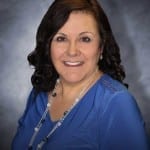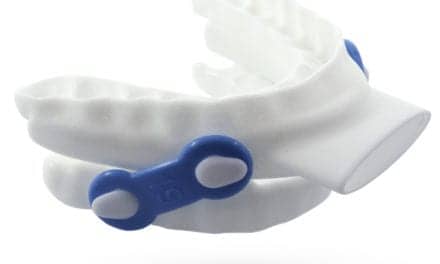A sleep apnea insurance consultant explains how a Centers for Medicare and Medicaid Services system update is impacting dental sleep medicine providers and Medicare beneficiaries—and gives advice on what to do now.
A few months ago, dental sleep medicine providers began receiving denials from the Centers for Medicare and Medicaid Services (CMS) for their patients’ oral appliances. What many long-time clinicians found particularly vexing is these device claims for patients with obstructive sleep apnea (OSA) were similar to previous claims that had been paid. So what changed?
First, what has not changed: Under the federal regulations detailed at 42 CFR 414.210(f), the reasonable useful lifetime (also known by the abbreviation “RUL”) of durable medical equipment is 5 years. RUL has always applied to same or similar services. Pertaining to OSA, Medicare has always considered positive airway pressure (PAP) devices and oral appliances to be a same or similar service.
What changed is in March 2018, a system update was applied that connects PAP devices and oral appliances in the system and no longer allows for claims to be adjudicated as they were in the past. The system update is effective in all 4 jurisdictions (though implementation date may vary). Providers are not notified of system updates. The update is resulting in patients whose claims are being denied under the RUL regulation; that is, if an OSA patient tried continuous positive air pressure (CPAP) within the last 5 years, they can be denied for an oral appliance under RUL. Even if the patient has since returned the PAP device and is no longer on rental, RUL still applies. A Medicare beneficiary who has rented or purchased a PAP device, which includes CPAP and bilevel positive airway pressure (BiPAP), or has been issued an oral appliance within the past 5 years that has been covered under their Medicare durable medical equipment (DME) benefit will have an automatic denial of a claim upon processing.
Clinical Practice
Once a patient is diagnosed with OSA, the physician chooses what therapy is best for that patient. Should the physician decide on PAP therapy as the first line of treatment and it is not effective, after the PAP certification period (90 days) the physician has the option to change to BiPAP. The BiPAP would deny if there is no certification for CPAP on file; with proper documentation, a denial should be overturned upon first appeal.
If the beneficiary is unable to tolerate PAP therapy, it is at the physician’s discretion to determine discontinuation of PAP therapy and refer for another treatment option, such as an oral appliance. The ordering physician has 90 days to determine if PAP therapy is an effective treatment. Should the physician decide the treatment is not effective, they would not sign the certification letter for PAP and treatment would be discontinued. It is at that time the patient can have an oral appliance ordered and be covered under Medicare.
An oral appliance would be reimbursed with no initial denial as long as it is within the first 90 days of treatment. Dental offices will find this timeline to be very difficult to adhere to, in part due to scheduling and fabrication time. The dental office will rely heavily on the physician’s notes regarding discontinuation of PAP therapy and why it is discontinued. These notes will later be vital if appealing the claim.
Appeals Process
You received your first denial, now what?
The first level of the appeals process is submitting a redetermination. The redetermination request form is available at www.cms.gov or on the website of your DME jurisdiction. When filing the redetermination, include as much documentation as you have to support the service.
Include the remittance advice (the denial), the physician’s written order (must be written within 6 months of the original face-to-face office visit ordering the sleep test), and all supporting medical documentation for the case, the face-to-face examination prior to ordering the diagnostic sleep test, a copy of the sleep test (polysomnography or home sleep apnea test), prescription, detailed written order, physician’s office notes regarding PAP failure, and dentist’s clinical findings from initial evaluation and issue appointment. The more medical justification you provide, the better the chance of overturning the denial.
What if the patient has PAP or BiPAP on file that is past day 91?
If the beneficiary “fails” PAP therapy after day 91, the possibility for overturning the denial decreases. The timeline would need to be heavily documented by the ordering physician. The PAP supplier would need to discontinue billing the PAP to Medicare if it is still within rental months. The physician (not the dentist) would have to assess if the beneficiary truly attempted and failed PAP therapy and why.
Next the beneficiary would have to meet local coverage determination (LCD) L33611 and related policy article A52512, both of which describe the requirements for oral appliances for OSA. The physician would order the oral appliance, and the dentist would evaluate, fabricate, and issue the device. The claim will deny due to the RUL. Redetermination would again need to include all supporting documentation to prove medical necessity for the oral appliance. The more time that lapses, the less chance of overturning the denial.
What if the redetermination returns the upholding of the denial?
Level II appeal would be your next course of action. This level of appeal is known as a reconsideration of the claim. Again, the appeal must be requested in writing. The form can be found at www.cms.gov. Include all supporting documents you have and clearly explain why you disagree with the redetermination. This will be sent to the qualified independent contractor of your jurisdiction for review. This is the last level of appeals for which supporting documentation can be submitted, so be sure to include any information you have that can support overturning the case (not limited to the physician and supplier notes).
There are five levels in the appeals process. Suppliers have the option of continuation should the reconsideration uphold the denial.
Advanced Beneficiary Notification (ABN) Option
For providers contracted with Medicare (either as participating or as nonparticipating), when same and similar is on file and the time is over day 91 or PAP certification has been signed by the MD, it is strongly recommended to have the beneficiary sign an advanced beneficiary notification (ABN). If the beneficiary opts to submit the claim to Medicare, the claim would be submitted with the second modifier (GA modifier) denoting the ABN is on file. This will inform Medicare that the supplier feels the item will not be a covered service and the beneficiary has been informed of this and why.
As always, if the supplier is nonparticipating, it is required to collect in full prior to submitting the claim; any remittance will go to the beneficiary. If the supplier accepts assignment, it is in network for that claim only and cannot balance bill to their fee, only collect Medicare allowance. If the supplier is participating and there is sufficient reasoning why the claim will deny, and the member has signed the ABN accepting financial responsibility, then the office can collect money prior to the denial (the ABN form states that the patient may be asked to pay at this time).
With an ABN signed, and a claim is submitted with the correct modifiers, the denial will come back as patient responsibility. The dentist office does have the option to file an appeal for the beneficiary, depending on the circumstances. The denial will state the full fee submitted is patient responsibility. You are required to collect that fee. You do have the option of discounting your fee (be sure to submit the reduced fee on the claim). Should the patient choose option B on the ABN, signifying the patient has chosen not to submit the oral appliance claim to Medicare, the patient is then self-pay and you may offer a discount (since there is no Medicare involvement).
Finally, what if the physician orders oral appliance therapy as firstline treatment and it is not effective?
The medical doctor would have to assess and document why the oral appliance is not a sufficient form of treatment for their OSA. If the beneficiary meets the criteria for CPAP (LCD L33718), the provider can then prescribe CPAP, but the claim will deny as not reasonable and necessary. If CPAP is initiated immediately after failing oral appliance therapy, the denial would have a good possibility of being overturned at first level appeal.
Feeling Overwhelmed?
Talk to your referring physicians, and let them know about this update. Often when given the physician-discussed treatment options, the patient may choose the oral appliance as firstline treatment.
On dentists’ side is the LCD, which states that with a comorbidity, mild OSA patients can use an appliance as firstline therapy and that moderate OSA patients can use an oral appliance and not have a PAP trial. This is consistent with the Clinical Practice Guideline for the Treatment of Obstructive Sleep Apnea and Snoring with Oral Appliance Therapy: An Update for 2015, which was written jointly by the American Academy of Sleep Medicine and American Academy of Dental Sleep Medicine.
Jan Palmer, FAADOM, of Jan Palmer Consulting, has been educating dental practices on proper medical documentation and the breakdown of policies for Medicare and private insurances since 2000. In addition to national speaking and consulting roles, Palmer works with the Provider Outreach and Education committee for Medicare DME for Jurisdictions A and D and co-authored an e-book Medicare: What Every Dentists Needs to Know NOW. She is on the board of directors of the Buffalo/WNY D.E.N.T.A.L. study group, is a Fellow of the American Association of Dental Office Management, a facilitator with the American Academy of Dental Sleep Medicine Mastery Course, and a member of the Academy of Dental Management Consultants, Dental Consultant Connection, DentalCodeology mastermind committee, and the Dental Experts Network—all while maintaining a management position with a practice exclusive to treating sleep apnea, where she puts theory into practice every day.






Per the Noridian rep at AADSM, it is far easier to ADD CPAP to oral appliance therapy that has proven insufficient than to swap CPAP for oral appliance during days 91 to year 5.
Getting the physicians to understand this is absolutely the key.
Under medicare guidelines, is it mandatory for PAP therapy to be attempted prior to referral for oral appliance?
For mild to moderate OSA, OA can be the first line of treatment. Mild should have a co-morbidity, moderate does not need one. As always, CPAP is the best option for severe apnea.
What if the patient is directly referred for Oral Appliance Therapy and never receives CPAP? Do they still have to be treated within 90 days of the sleep study?
After years of struggling with CPAP equipment & loosing more sleep, I found out about a DNA that could solve my problem. I contacted Medicare & spoke with an employee regarding medical coverage. I was told I could file my own claim & I was referred to the website for the form required. Long story short, I filed all the proper paperwork, but was denied! I was informed that I could appeal…I did & was denied again. It appears that a rules interpretation was altered in March 2018. Good news is I am getting some relief…bad news is I’m screwed by the system that I paid into for 40 years!